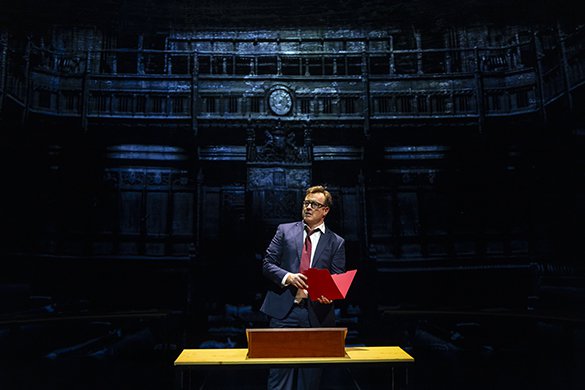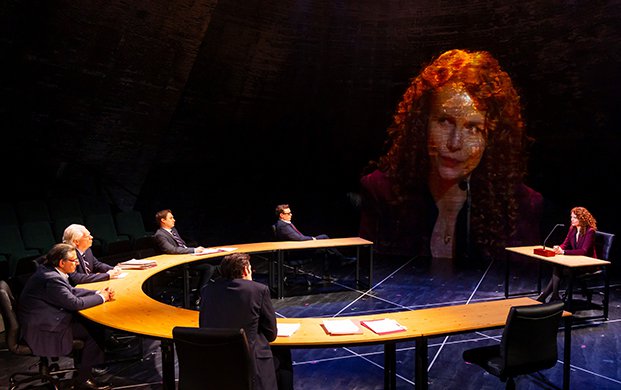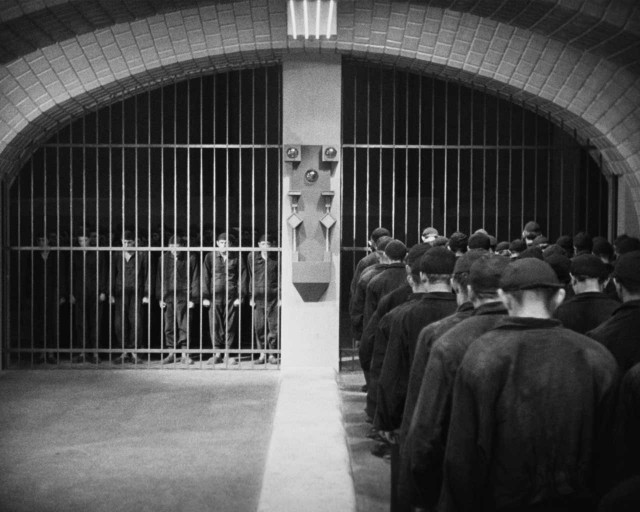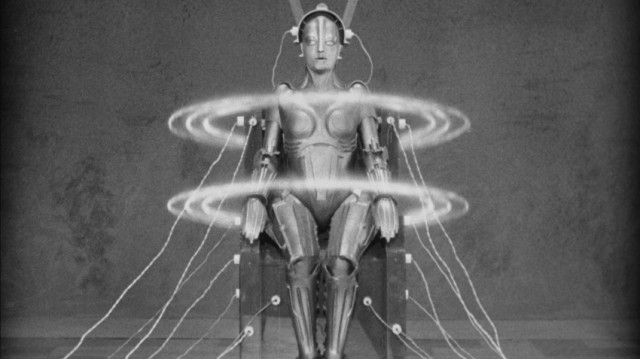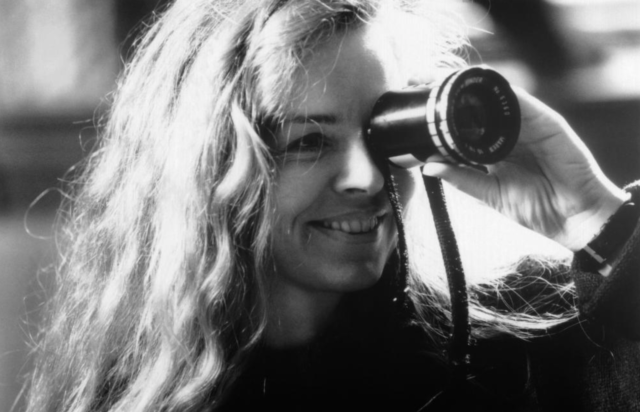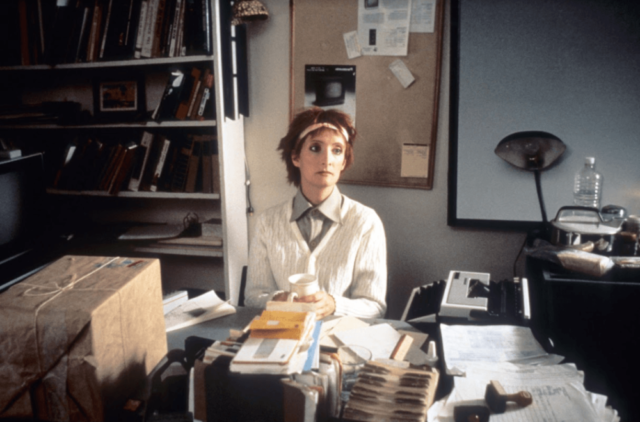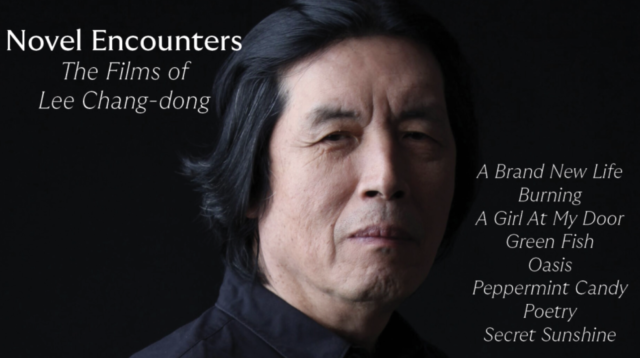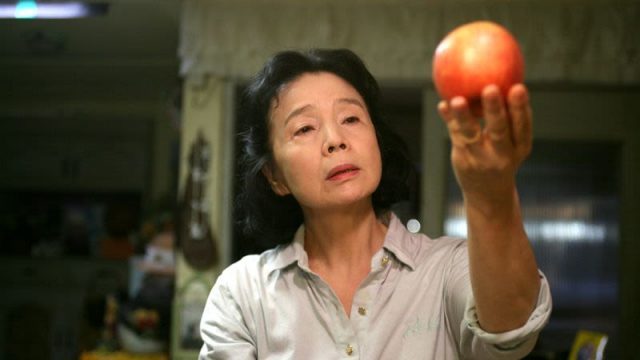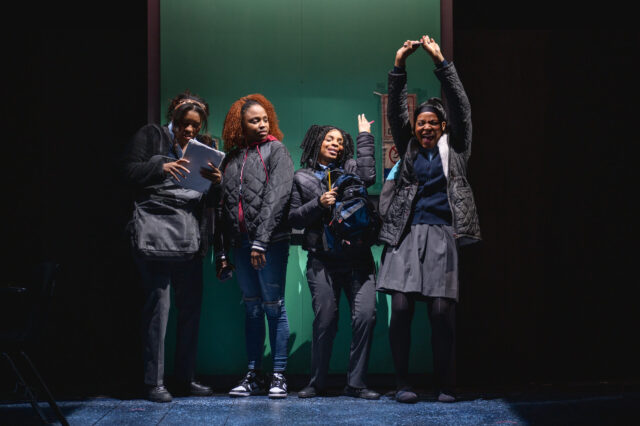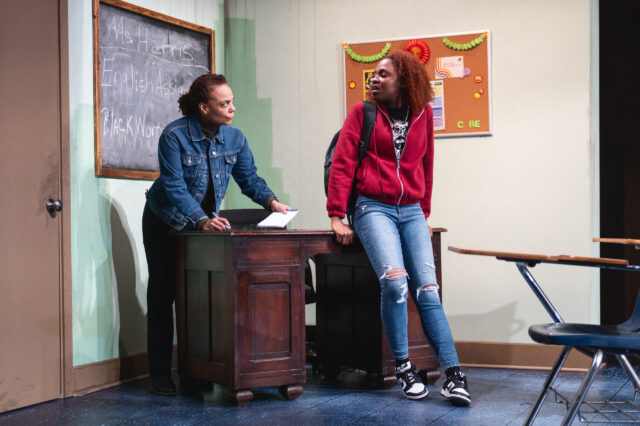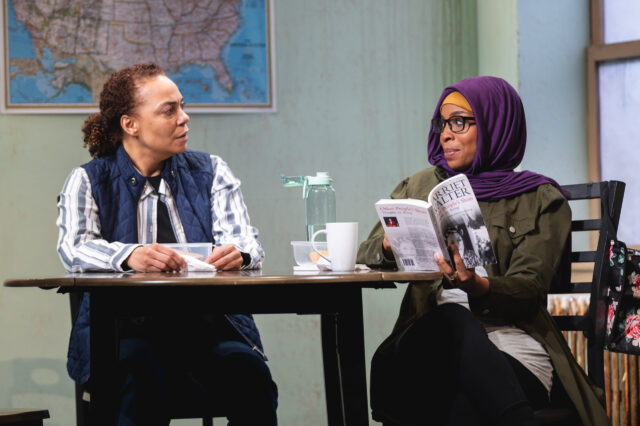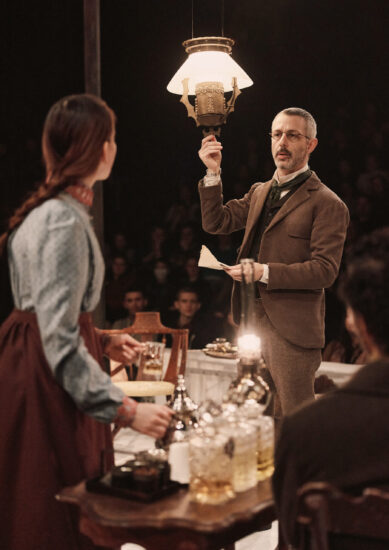
Jeremy Strong stars in new translation of Henrik Ibsen’s cautionary An Enemy of the People (photo by Emilio Madrid)
AN ENEMY OF THE PEOPLE
Circle in the Square Theatre
1633 Broadway at 50th St.
Tuesday – Sunday through June 23, $99 – $499
anenemyofthepeopleplay.com
What price truth?
That is the question that drives Henrik Ibsen’s 1882 drama An Enemy of the People, which can currently be seen in an intense new translation by Obie winner and Tony nominee Amy Herzog, directed by her husband, Tony and two-time Obie winner Sam Gold, at Circle in the Square; this is the first time the couple has worked together, and hopefully not the last.
The story takes place in the late nineteenth century in a small Norwegian town in late winter, but it could also be set anytime, anywhere, including America in 2024. The fortysomething Dr. Thomas Stockmann (Jeremy Strong), a widower, lives a quiet life with his daughter, Petra (Victoria Pedretti), a schoolteacher in her early twenties. They have an open house, welcoming friends and colleagues to stop by for a drink, a smoke, a meal, or stimulating conversation.
The play opens with Petra and the family maid serving dinner to an eager Billing (Matthew August Jeffers). When Petra points out how hard it can be teaching her class of sixteen boys “anything of value,” Billing replies, “So take a load off, sit with me. Teach me something, I’m very ignorant, it’s a real shame.” Value, ignorance, and shame will become key themes to the show.
Billing’s boss, Hovstad (Caleb Eberhardt), arrives, followed by Peter Stockmann (Michael Imperioli); the former is the editor of the local paper, the People’s Messenger, while the latter is the mayor and Thomas’s older brother.
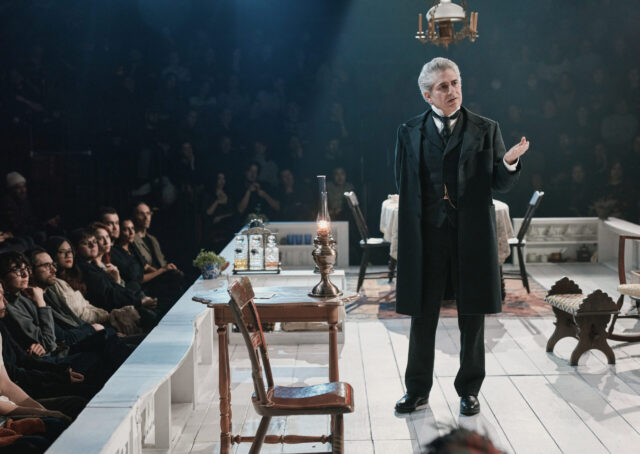
Town mayor Peter Stockmann (Michael Imperioli) doesn’t like what he hears in Broadway revival (photo by Emilio Madrid)
The town’s future has been built on the success of the Baths, the main attraction at the new spa resort. The local economy is about to boom as spring and summer approach, but Thomas has some bad news. “The water at the Baths is rife with bacteria, tiny micro-organisms that cause disease. It’s completely unsafe,” he tells Petra, Billing, Hovstad, and Captain Horster (Alan Trong). Petra says, “Thank goodness you discovered it in time.” They toast Thomas as a local hero, but Petra’s response is not necessarily shared by the rest of the town, including her maternal grandfather, Morten Kiil (David Patrick Kelly), who owns a tannery that might be contributing to the water pollution.
Hovstad is excited “to expose these clowns” by publishing Thomas’s article about the poisonous water and what it will take to save the spa. The printer, Aslaksen (Thomas Jay Ryan), who is also the chair of the Property Owners’ Association and a temperance leader, offers Thomas his full support but suggests he proceed carefully, in moderation.
But when Peter finds out what it will take to make the Baths safe, Thomas goes from hero to villain as he’s publicly declared an Enemy of the People.
Herzog, whose 4000 Miles was a Pulitzer Prize finalist and whose Mary Jane begins Broadway previews April 2, last year adapted Ibsen’s 1879 masterpiece, A Doll’s House, earning six Tony nominations, including Best Revival of a Play. Gold, who won an Obie and a Tony for directing Fun Home at the Public and Circle in the Square, respectively, and another Obie for Annie Baker’s Circle Mirror Transformation, was also nominated for a Tony for helming Lucas Hnath’s A Doll’s House, Part 2. You can expect a boatload of Tony nods for their inaugural collaboration.
The audience sits on three sides of the narrow rectangular stage, which runs down the middle. Thomas’s home is plainly furnished, with simple tables and chairs; small changes are made when the scene moves to the printing press and a large meeting room. A white building facade surrounds the space at the top, seemingly unnecessary except to hide a surprise that arrives at intermission. The set is by dots, with tender lighting, featuring several gas lamps, by Isabella Byrd, sound by Mikaal Sulaiman that incorporates dialogue and musical performances, and fine period costumes by David Zinn.
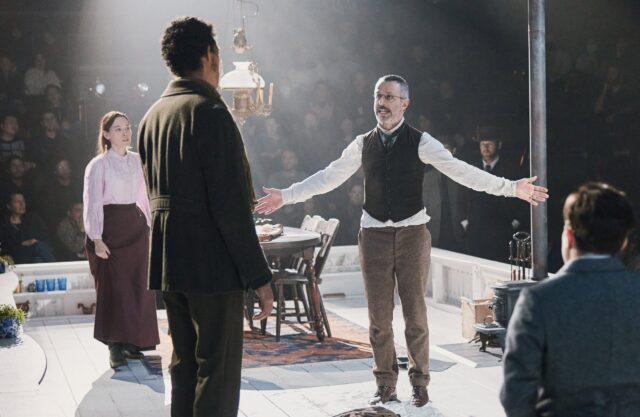
Dr. Thomas Stockmann (Jeremy Strong) is afraid everything will all fall apart unless local town listens to him (photo by Emilio Madrid)
Taking a page out of Daniel Fish’s 2019 Tony-winning revival of Oklahoma! at Circle in the Square, which invited the audience onto the stage during intermission for cornbread and a cup of chili, An Enemy of the People offers shots of a prominently featured Nordic liqueur while several ensemble members (Katie Broad, Bill Buell, David Mattar Merten, Max Roll, Kelly) sing Norwegian folk songs. After intermission, more than a dozen audience members remain onstage, becoming citizens at the town meeting where the mayor maneuvers to silence his brother, along with the rest of the audience, as the speakers address all of us directly with the lights on, each person in the theater involved in the controversy.
Emmy winner Strong (A Man for All Seasons, The Great God Pan), best known for his role as Kendall Roy on Succession, gives a profoundly measured performance as Thomas, a gentle, considerate, if somewhat elusive man, at the edge of exploding, whose life turns upside down when he becomes a whistleblower, standing nearly alone as he staunchly refuses to surrender his principles; it’s a cautionary tale that’s ripe for the modern age, given the spread of fake news over social media and the rejection of truth in favor of money and power by politicians and corporations.
In his Broadway debut, Emmy winner Imperioli (The Sopranos, The White Lotus) is a fine foil as Peter, an arch-conservative to his liberal brother. The ever-dependable Ryan (Dance Nation, The Nap) is phenomenal as Aslaksen, whose belief in freedom of the press goes only so far.
All that said, Herzog is not able to solve some of the play’s inherent problems, a significant reason why it is performed relatively rarely. Arthur Miller’s adaptation debuted on Broadway in 1950 with Fredric March as Thomas and Morris Carnovsky as Peter and was turned into a 1978 film with Steve McQueen and Charles Durning; a 2012 revival with Boyd Gaines and Richard Thomas as the brothers was disappointingly trite. Unfortunately, Robert Ickes’s inventive, interactive 2021 solo version starring Ann Dowd at the Park Ave. Armory was cut short when Dowd had to leave for unstated personal reasons.
Herzog excises the doctor’s wife, and we never see their two sons, making Thomas more of a lone wolf. The town hall scene gets a bit ludicrous at the end with the addition of awkward props. And there is far too much editorializing as the narrative reaches its overly simplistic resolution.
But the play’s relevancy still hits home in 2024, amid domestic and international crises that continue to shake the stability of the world as we realize it will take a lot more than just one brave man to save us from our destiny.
[Mark Rifkin is a Brooklyn-born, Manhattan-based writer and editor; you can follow him on Substack here.]

